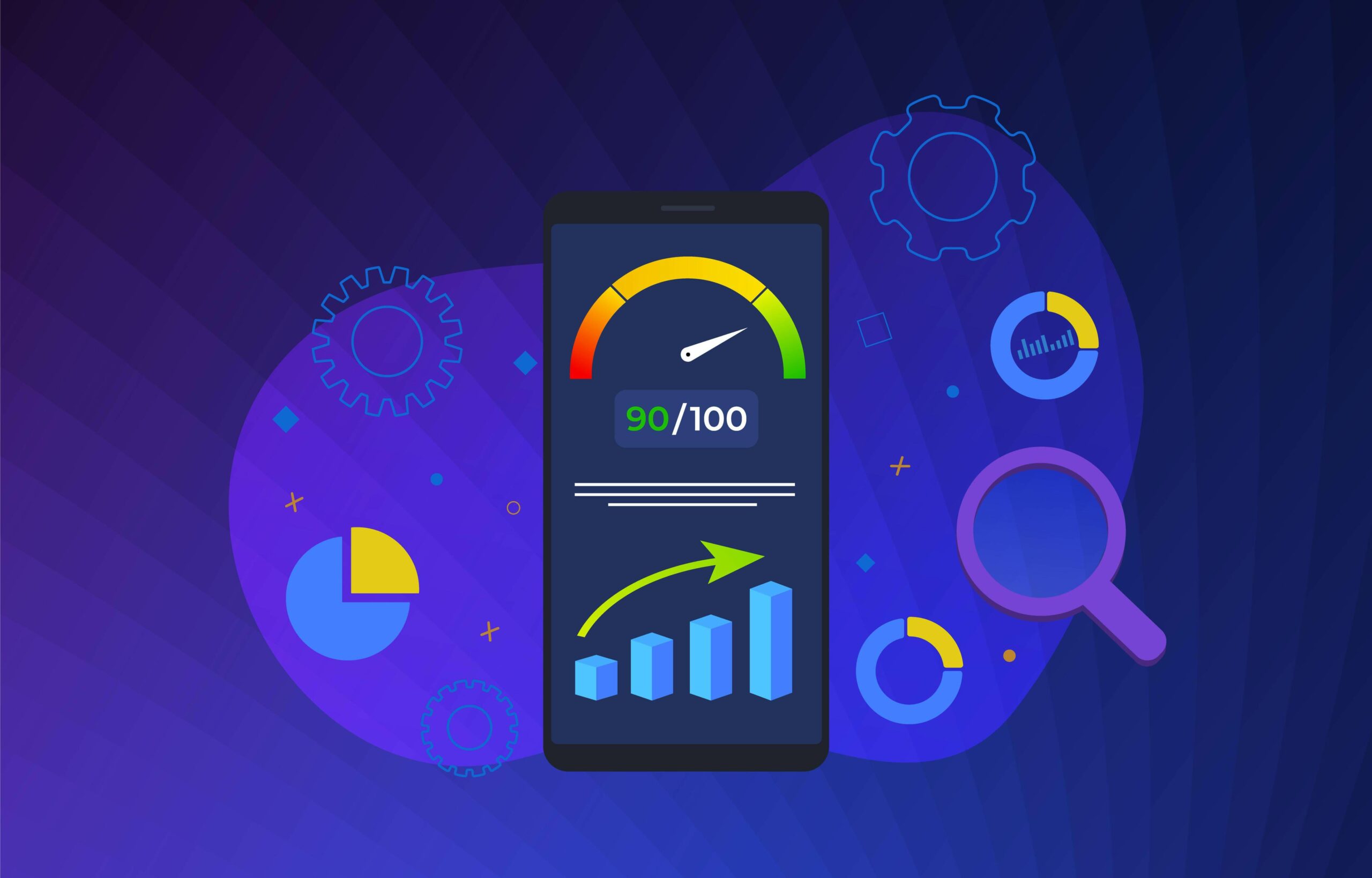How To Measure SEO Success
-

Aaron Gray
- Blogs
-
 February 09 , 2024
February 09 , 2024
-
 9 min read
9 min read
ANSWER
To measure SEO success, focus on critical metrics such as overall organic traffic, click-through rate from organic listings, and conversion rate from organic traffic, along with rank tracking for important keywords. Aside from this, it would be best to utilize a comprehensive SEO metrics framework like Google’s, which covers discovery, assessment, action, and outcome metrics to evaluate different aspects of your SEO performance.
Additionally, leveraging SEO dashboards for a holistic view of your SEO efforts can be helpful. Finally, set SMART goals to ensure that your strategies are effectively aligned with your business objectives and that their progress is quantifiable.
Key Takeaways
- Attribution challenges in SEO: Measuring SEO success is complex due to difficulties in directly attributing conversions or sales to SEO efforts, as customer interactions with brands occur across multiple touchpoints. Challenges include accurately determining search query volume for target keywords, filtering out low-quality traffic, and managing ranking fluctuations.
- Critical metrics for measurement: Essential metrics for gauging SEO effectiveness include overall organic traffic, click-through rate from organic listings, and the conversion rate from organic traffic. Rank tracking for crucial keywords, particularly geo-targeted and long-tail, is vital for monitoring visibility progress.
- Google’s SEO metrics framework: This framework comprises discovery metrics (visibility in rankings and traffic), assessment metrics (click-through), action metrics (engagement through leads and sales), and outcome metrics (business impact such as revenue and cost savings). This comprehensive approach helps in evaluating various aspects of SEO performance.
- Importance of SEO dashboards: Utilizing SEO dashboards like Tableau and Power BI provides a holistic view of SEO performance. These dashboards allow for adequate visualization and timely optimization based on short and long-term SEO metrics aligned with business goals.
- Advanced SEO metrics and SMART goals: Advanced metrics such as conversion rate and mobile usability offer deeper insights into the effectiveness of SEO strategies. Setting SMART goals (Specific, Measurable, Achievable, Relevant, Time-bound) provides a structured approach to SEO measurement and SEO tracking progress, ensuring that SEO efforts are strategically aligned and effectively monitored.

Search engine optimization (SEO) refers to improving a website’s visibility in search engine results pages. SEO is critical for businesses to reach their target audience online in today’s digital landscape. However, measuring SEO success can be challenging.
A significant difficulty lies in attribution. It’s hard to directly attribute a conversion or sale to SEO, as customers interact with brands across many touchpoints. Additional challenges include determining the accurate search volume for target keywords, filtering out low-quality traffic, and managing ranking fluctuations.
Nevertheless, a few key metrics and frameworks allow for effective SEO measurement. Valuable metrics include overall organic search traffic, click-through rate from organic listings, and conversion rate from organic traffic. Comparing these metrics historically or to competitors’ benchmarks helps gauge impact. Rank tracking for essential keywords can indicate visibility progress, especially for geo-targeted and long-tail keywords.
The SEO metrics framework by Google covers the key areas to track – discovery, assessment, action and outcome. Discovery metrics show search engine visibility in rankings and traffic. Assessment metrics like click-through and time on site indicate user experience. Action metrics highlight engagement through leads and sales. Finally, outcome metrics evaluate the end business impact through goals like revenue and cost savings.

Meanwhile, a dashboard with relevant short and long-term SEO metrics tailored to business goals provides visibility for timely optimizations. A/B testing content and tracking SEO rankings over an extended duration also helps demonstrate a correlation between important SEO activities and actual growth. Businesses can accurately evaluate and improve their SEO results with the right metrics approach.
This article discusses how to measure SEO success. Continue reading to learn more.
Core SEO Metrics: A breakdown
Core SEO metrics include organic traffic, keyword rankings, and backlink quality. Organic traffic measures the number of visitors coming to a website from search engine results, indicating the site’s visibility and relevance to user queries.
Meanwhile, keyword rankings assess a website’s position in search engine results pages for specific keywords, reflecting its competitiveness and relevance in its niche. Finally, backlink quality evaluates the strength and significance of external links pointing to the website, influencing its authority and trustworthiness in search engine algorithms.
Here’s a more detailed description of each core metric:
Organic traffic
Organic traffic is the number of visits coming from unpaid search engine results. Unlike paid traffic, it demonstrates the relevance of a website’s content to user search intent. The best SEO tools like Google Search Console and SEMrush provide insight into search terms driving organic traffic and help analyze trends over time.
A consistent increase indicates improving SEO rankings and visibility, while drops need investigation for issues like thin content, technical SEO problems, or Google algorithm updates. Analyzing competitor website traffic benchmarks also helps gauge website performance. A periodic SEO audit helps identify new topic gaps or underperforming sections to boost organic traffic.
Keyword rankings
Keyword rankings denote the position of webpages for target search terms – critical for visibility to the relevant audience. Rank tracker tools like Ahrefs and Moz monitor SEO rankings in Google and highlight movement.
Targeting less-competitive long-tail keywords by expanding topically related content provides quick wins. Already ranking well for commercial keywords signals overall solid authority.

By mapping ranking positions to traffic and conversion data, businesses can discern the highest potential search terms to double down on. Aggressively tracking new entrants also prevents losing out on relevant searches. With regular rank analysis, SEOs can capitalize on terms they rank well for while improving volume and precision for critical searches.
Click-through rate (CTR)
Click-through rate (CTR), or the number of clicks a search result listing gets divided by its impressions, gauges user interest and satisfaction. Irrelevant results or those not formatted engagingly lead to low CTR – losing qualified traffic.
How do websites achieve reasonable click-through rates? The answer is by creating strong title tags and meta descriptions that communicate core information. Meanwhile, data on current click-throughs and tools highlighting top-performing listings by competitors help create optimized titles and meta descriptions. Also, testing content variations for the same target keyword provides additional CTR lift.
Understanding how site traffic correlates with ranking positions is pivotal. Additionally, keeping an eye on SERP features that impact click-through rates provides valuable insights for optimizing content and link building efforts.
With regular optimization and testing, businesses can improve CTR to leverage rankings, gain more qualified visitors, and reduce cost per lead/sale from organic search over time.
Beyond the basics: Advanced SEO metrics
Advanced SEO metrics provide deeper insights into the effectiveness of SEO strategies. Examples include:
Conversion rate
The conversion rate pertains to the percentage of visitors who take a desired action (like purchasing or signing up for a newsletter). Conversion metrics ties SEO efforts directly to business outcomes and requires thorough tracking and attribution. Successful conversion rate optimization not only improves user satisfaction but also directly impacts the effectiveness of SEO efforts, creating a symbiotic relationship between website performance and business success.
Page load speed

Page speed is critical for user engagement and experience and search engine rankings. It is advanced because it involves technical website performance analysis and understanding its impact on SEO.
Organic clicks and impressions
Data from tools like Google Search Console can show how often your pages appear in organic search results (impressions) and how often they are clicked on. Advanced analysis involves interpreting these metrics to optimize for better search engine visibility and engagement.
Mobile usability
With the increasing prevalence of mobile browsing, metrics around mobile user experience are critical. It involves understanding how mobile users interact differently with your site than desktop users.
Backlink quality and authority
The domain authority score also plays a crucial role in determining a website’s overall standing in the eyes of search engines. Analyzing the backlink profile, as well as the quantity, quality, and relevance, is essential to determine the authority they convey to your site. It’s advanced due to the need for sophisticated tools and an understanding of link-building strategies.
Content gap analysis
A content gap analysis will help you identify topics your competitors cover, but your website needs to. Doing so requires advanced tools and strategies to analyze competitor content and search data.
Analyzing SEO performance goes beyond basic metrics like click-through rates; it involves delving into SEO KPIs such as average session duration, bounce rate, and engagement rate. For instance, a high bounce rate might indicate that visitors aren’t finding what they need quickly, prompting the need for strategic SEO campaign adjustments. On the flip side, a positive engagement rate can be seen as good news, signifying that users are actively interacting with the content.
These metrics are considered advanced because they provide a more nuanced view of SEO performance, requiring specialized tools and more profound analytical skills to interpret and act upon. They help fine-tune SEO campaigns and strategies to be more effective and aligned with specific business objectives.
Frameworks for measuring SEO Success
SMART Goals
SMART goals provide a structured framework for SEO measurement and tracking progress, ensuring efforts are focused and effective:
- Specific: You can precisely focus your SEO strategies by setting clear goals, such as increasing organic traffic to a particular product page or improving rankings for targeted keywords. This specificity allows for targeted analysis, letting you measure the impact of specific actions on aspects of your SEO.
- Measurable: Having measurable goals means you can quantitatively track your progress. Using tools like Google Analytics or SEO platforms, you can monitor changes in traffic, keyword rankings, bounce rates, and other vital metrics. This data provides concrete evidence of how well your SEO strategies are performing.
- Achievable: Setting achievable goals ensures your SEO plans are realistic and attainable. It helps in maintaining realistic expectations and provides a clear sense of direction. Achievability can be assessed by tracking incremental improvements and ensuring your SEO strategy makes a tangible impact.
- Relevant: Relevant goals ensure that your SEO efforts align with broader business objectives. This alignment means that you are not just driving any traffic but the right kind of traffic that is likely to convert or meet other business goals. Tracking metrics like conversion rates or the quality of leads can help assess this relevance.
- Time-bound: By setting time frames for your goals, you can create urgency and a schedule for review and adjustment. This aspect allows for periodic evaluations of your strategies, helping you understand if you are on track and need to pivot or intensify efforts in certain areas.

SMART SEO goals provide a clear roadmap for SEO efforts, making it easier to focus resources effectively, measure progress accurately, and adjust strategies for optimal performance.
SEO dashboards
SEO dashboards are crucial in effectively visualizing SEO data. They’re also essential to transforming complex metrics into accessible and actionable insights. By aggregating data from various sources, these dashboards offer a comprehensive view of SEO performance, enabling marketers and SEO professionals to make informed decisions.
Tools like Tableau and Power BI are at the forefront of this visualization process. These platforms can integrate data from Google Analytics, Search Console, and other SEO tools, presenting them in an interactive and intuitive format.
For instance, a Tableau dashboard might display critical metrics such as organic traffic, keyword rankings, and click-through rates in a unified view. Users can interact with the data, drilling down into specific periods or segments, which aids in identifying trends and patterns that might not be apparent in raw data. Similarly, a Power BI dashboard could integrate backlink profiles, page load times, and conversion rates, offering a multi-faceted view of a website’s SEO health.
These dashboards are not just about presenting data; they provide a holistic view of SEO performance. They enable SEO practitioners to quickly assess the effectiveness of their strategies and identify areas needing improvement.
By presenting data in an easily digestible format, SEO dashboards facilitate more strategic decision-making and allow for more agile responses to the ever-changing landscape of search engine optimization. They’re essential tools in the modern SEO toolkit, turning data into a visual story that guides strategy and drives results.
Conclusion
Attributing conversions to SEO is a complex process. As such, it’s essential to know which factors to consider and give importance to each accordingly. Learn how to use a variety of metrics like organic traffic, click-through rates, and conversion rates for effective measurement. Finally, setting SMART goals for your SEO planning will help simplify the assessment of results.

Our Mission: Transforming SEO with Transparency and Trust

Try It Now For Free!
No credit card required. Prefer a demo?
Sign Up
"*" indicates required fields

